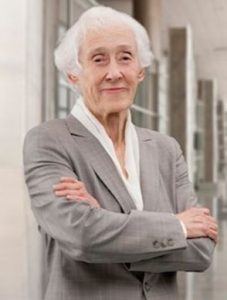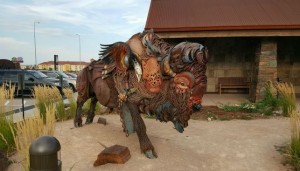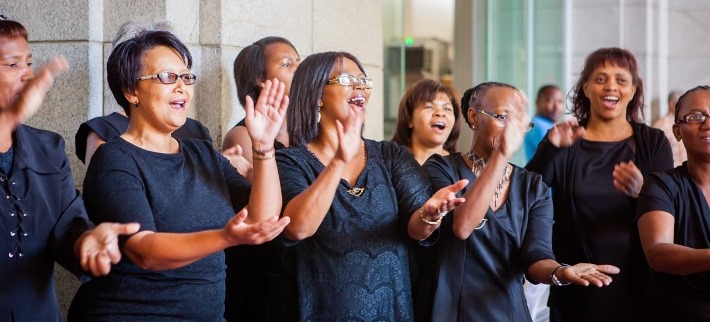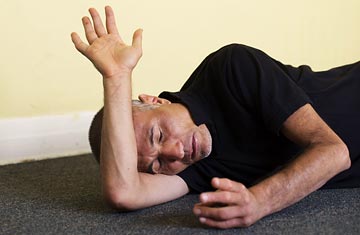March 27th, 2017 by Dr. Val Jones in Health Policy, True Stories
No Comments »
 We’ve all heard the saying, “age is just a number.” Nowhere is that more important than in the hospital setting. Over the years I’ve become more and more aware of ageism in healthcare – a bias against full treatment options for older patients. Assumptions about lower capabilities, cognitive status and sedentary lifestyle are all too common. There is a kind of “senior profiling” that occurs among hospital staff, and this regularly leads to inappropriate medical care.
We’ve all heard the saying, “age is just a number.” Nowhere is that more important than in the hospital setting. Over the years I’ve become more and more aware of ageism in healthcare – a bias against full treatment options for older patients. Assumptions about lower capabilities, cognitive status and sedentary lifestyle are all too common. There is a kind of “senior profiling” that occurs among hospital staff, and this regularly leads to inappropriate medical care.
Take for example, the elderly woman who was leading an active life in retirement. She was the chairman of the board at a prestigious company, was an avid Pilates participant, and the caregiver for her disabled son. A new physician at her practice recommended a higher dose of diuretic (which she dutifully accepted), and several days later she became delirious from dehydration. She was admitted to the local hospital where it was presumed, due to her age, that she had advanced dementia. Hospice care was recommended at discharge. All she needed was IV fluids.
I recently cared for an attorney in her 70’s who had a slow growing brain tumor that was causing speech difficulties. She too, was written off as having dementia until an MRI was performed to explore the reason for new left-eye blindness. The tumor was successfully removed, but she was denied brain rehabilitation services because of her “history of dementia.”
Of course, I recently wrote about my 80-year-old patient, Jack, who was presumed to be an alcoholic when he showed up to his local hospital with a stroke.
Hospitalized patients are often very different than their usual selves. As we age, we become more vulnerable to medication side-effects, infections, and delirium. And so, the chance of an elderly hospitalized patient being acutely impaired is much higher than the general population. Unfortunately, many hospital-based physicians and surgeons — and certainly nurses and therapists — have little or no prior knowledge of the patient in their care. The patient’s “normal baseline” must often be reconstructed with the help of family members and friends. This takes precious time, and often goes undone.
Years ago, a patient’s family doctor would admit them to the hospital and care for them there. Now that the breadth and depth of our treatments have given birth to an army of sub-specialists, we have increased access to life-saving interventions at the expense of knowing those who need them. This presents a peculiar problem – one in which we spend enormous amounts of resources on diagnostic rabbit holes, because we aren’t certain if our patients’ symptoms are new or old. Was Mrs. Smith born with a lazy eye, or is she having a brain bleed? We could ask a family member, but we usually order an MRI.
My plea is for healthcare staff to be very mindful of the tendency to profile seniors. Just because Mr. Johnson has behavioral disturbances in his hospital room doesn’t mean that he is like that at home. Be especially suspicious of reversible causes of mental status changes in the elderly, and presume that patients are normally functional and bright until proven otherwise.
Last month I hit a new age record at my rehab hospital – I admitted a charming, active, 103-year-old woman after a small stroke caused her some new weakness. She was highly motivated in therapy, improved markedly and was discharged to an independent living center. I bet she will live many more years. When I joked that she didn’t look a day over 80, she winked and told me she had stopped counting birthdays years ago. She said, “It doesn’t matter how old you are, it matters what you can do. And I can do a lot.”
May 24th, 2016 by Dr. Val Jones in True Stories
No Comments »
 *This post was initially published on the Barton Blog.
*This post was initially published on the Barton Blog.
As a locum tenens physician in rehabilitation hospitals, I see patients with some of the most unique injuries. From rare brain infections contracted in exotic lands, to the consequences of ill-advised horseplay with guns or ATVs – I’d begun to wonder if maybe I’d seen it all.
And then I met a grandma from New Jersey, who had a life-changing encounter on a nature trail out west. In her dutiful effort to corral her teenage grandchildren, and keep them following the guide’s directions, she shouted for them to remain on the path. In so doing, her yelling attracted the attention of an ill-tempered bison. The animal rapidly approached from behind without her notice. In the blink of an eye, the bison threw her up in the air with a flick of its horned head.
“As a locum tenens physician in rehabilitation hospitals, I see patients with some of the most unique injuries.”
As she crashed to the ground, she rose up again instinctively (to dust herself off and prepare to run) as the animal came back for a second hit. One of its horns sliced a huge gash in her buttock as she fell head first on the ground, causing brain bleeding. The guide managed to scare off the beast as my patient’s granddaughter had the presence of mind to staunch her bleeding wound by having her sit on her thigh, as the guide called in an air flight to my hospital.
After stabilization in the ICU and several surgeries to correct the gashes, my patient arrived in the rehab unit with a traumatic brain injury. She was quite disoriented, her pain was poorly controlled, and even the slightest noises were very disturbing to her. She had flashbacks of the event and would call out in fear during her fitful sleep.
With careful therapy, low stimulus environment, and better pain management, I began to see glimpses of my patient’s usual brilliance and keen sense of humor. She was determined to improve, and participated eagerly in the full gamut of activities, including focused attention tasks and balance and agility tests.
One weekend I was eating at a local restaurant and noticed bison carpaccio on the menu. I couldn’t resist the opportunity to “get even” for my patient. I ordered the dish and took a photo with my smart phone. On Monday I showed her the image – and told her I had evened the score. Her face lit up from ear to ear. She told me to keep eating buffalo for the rest of my days!
October 6th, 2015 by Dr. Val Jones in True Stories
3 Comments »
 My patient was an elderly farmer with severe vascular disease. He had advanced leg artery narrowing, had survived multiple heart attacks, and was admitted to the hospital after a large stroke. He was incredibly cheerful, vibrant, and optimistic. He had a very large, loving family who took turns attending to him, and encouraging him with each small improvement in his leg and arm strength. They knew his neurological exam better than his doctors.
My patient was an elderly farmer with severe vascular disease. He had advanced leg artery narrowing, had survived multiple heart attacks, and was admitted to the hospital after a large stroke. He was incredibly cheerful, vibrant, and optimistic. He had a very large, loving family who took turns attending to him, and encouraging him with each small improvement in his leg and arm strength. They knew his neurological exam better than his doctors.
I was amazed at his recovery, given the size and location of his stroke (and his advanced age), I had suspected that he would end up wheelchair bound. But he was determined to walk again and get back to his gardening as soon as possible. His children told me that he was very stubborn and was a true “fighter.” As their patriarch, he carefully questioned each of them about their goings on, making sure that they were each on track with grain harvesting plans, animal feedings, and various farm-related projects. His life had meaning and purpose, and the hospitalization was merely a change of venue for his daily instructions.
Because my patient was so motivated, I offered to bring him to his physical therapy session early one day. To my surprise, he firmly, but politely declined.
“I have an appointment with my family in my room.” he said.
I wondered if they were going to discuss advanced directives with an attorney, or something of similar seriousness.
“Oh, I see. Well we will come get you at the regular time then.” I smiled and left the room.
As I walked down the hall back towards the nurses station I recognized various members of his family proceeding towards his room, dressed in what appeared to be their “Sunday best.” There must have been at least 15 people in the group, ranging from tweens to adults. They were smiling and upbeat.
Minutes later I heard wondrous a capella choral sounds wafting from the patient’s room and filling an entire wing of the hospital. All motion ceased. Therapists stopped pushing wheelchairs, exercises paused, patients with walkers stood silent in the middle of sterile, tiled floors.
My patient had delayed his therapy session for something far more important – a live chorus of loving family, singing for him in a private exhibition that managed to touch us all.
The music I heard that day taught me a very important lesson. Some people know how to live their very best, wherever they are. Even a life-threatening condition in a hospital setting cannot dampen the human spirit.
May we all aspire to have such a spirit.
September 24th, 2015 by Dr. Val Jones in True Stories
No Comments »
 My newly admitted patient was at the end of a very long struggle with a devastating genetic disorder. He had been treated by some of the finest experts in America for his rare disease, and had come to my rehab unit for aggressive physical and occupational therapy. He was exhausted, but mustered the energy to tell me (probably the 100th physician to treat him) his complicated story.
My newly admitted patient was at the end of a very long struggle with a devastating genetic disorder. He had been treated by some of the finest experts in America for his rare disease, and had come to my rehab unit for aggressive physical and occupational therapy. He was exhausted, but mustered the energy to tell me (probably the 100th physician to treat him) his complicated story.
Listening to this man, and examining his frail body, I realized that he had already explored every treatment option and avenue available. He had extensive conversations about his genetic variant, and which drugs could possibly modify his course. He had tried pretty much everything once, with little improvement. He told me that the team of experts at my hospital were rallying to repeat some of the costly treatments that had failed previously, to see if maybe this time they could make a difference.
As our eyes met, I realized that we both knew that these treatments were not worthwhile. I could see that he didn’t want to be “non-compliant” with his physicians’ recommendations, and was reluctantly willing to give their plans a shot. I knew that he needed to hear that it was okay to say “no.”
I took in a deep breath and voiced what we both knew to be true – there was no further need for IV medication. Now was the time to make the most of the function he had, to get him home with family support, and to focus on enjoying life rather than fighting a disease.
The relief brought him to tears. I began to put his socks back on his cold feet. He asked if I could leave them off.
I joked with him softly, “I guess your feet just want to be free.”
He smiled and nodded.
I didn’t order any tests or treatments, I just stood next to him in the moment.
And sometimes, that’s what a doctor is supposed to do.
September 9th, 2015 by Dr. Val Jones in Health Tips, True Stories
1 Comment »

Photo Cred: Max S. Gerber
I learned a valuable lesson recently about how difficult it can be to make the correct diagnosis when you see a patient for a very short period of time. In the acute rehab setting I admit patients who are recovering from severe, life-altering brain events such as strokes, head injuries, and complex medical illnesses. It is challenging to know what these patients’ usual mental function was prior to their injuries, and so I rely on my knowledge of neuroanatomy, infectious disease, and pharmacology to guide my work up. However, I have learned that asking the patient’s family members about what they were like (in their healthier state) is extremely important as well. Personality quirks, likes and dislikes, and psychiatric history all offer clues to ongoing behavioral challenges and mental status changes.
This fact was never clearer than when I met an elderly gentleman with a new stroke. He was extremely drowsy, non-participatory, and was not oriented to anything but his name. The stroke had occurred in a part of the brain that does not affect cognition, so I began to wonder if he had an infection or was having a reaction to a medication. I carefully ruled out all possible sources of infection, and I combed through his medication list and removed any potentially sedating drugs. His mental status remained unchanged for several days. I then began to wonder if perhaps he was suffering from significant dementia at baseline, and that he was living at home with more help from his family than they had initially reported. The therapy team and I began to consider a transfer to a nursing home. The family was horrified by the idea.
As it turned out, his grandson shared with me that he believed that the patient was autistic. Because his grandpa was elderly, he grew up in a time where not much was known about autism, and diagnoses of the condition was rarely made. He was therefore never formally diagnosed, but had many of the textbook characteristics. His stroke, combined with a sudden transfer to an inpatient hospital setting, was very distressing for the patient, and he had shut down to protect himself from the mental anguish. The “dementia-like” behavior that we were witnessing was merely an acute psychological reaction.
Armed with this new information, the therapy team requested family members to be present during all sessions – to encourage participation and to provide comfort and normalization of the transition from home to hospital. The patient responded beautifully, and made remarkable gains in his ability to walk and participate in self care activities.
I apologized profusely to the family for our period of confusion about his diagnosis and care needs, and offered reassurance that we would do our very best to help him recover from his stroke so that he could go home directly from the hospital. He did in fact return home, and with a little extra help from his daughters, he is enjoying his usual projects and activities.
As for me, I will never presume dementia without careful family confirmation again.
 We’ve all heard the saying, “age is just a number.” Nowhere is that more important than in the hospital setting. Over the years I’ve become more and more aware of ageism in healthcare – a bias against full treatment options for older patients. Assumptions about lower capabilities, cognitive status and sedentary lifestyle are all too common. There is a kind of “senior profiling” that occurs among hospital staff, and this regularly leads to inappropriate medical care.
We’ve all heard the saying, “age is just a number.” Nowhere is that more important than in the hospital setting. Over the years I’ve become more and more aware of ageism in healthcare – a bias against full treatment options for older patients. Assumptions about lower capabilities, cognitive status and sedentary lifestyle are all too common. There is a kind of “senior profiling” that occurs among hospital staff, and this regularly leads to inappropriate medical care.

 *This post was initially published on the
*This post was initially published on the  My patient was an elderly farmer with severe vascular disease. He had advanced leg artery narrowing, had survived multiple heart attacks, and was admitted to the hospital after a large stroke. He was incredibly cheerful, vibrant, and optimistic. He had a very large, loving family who took turns attending to him, and encouraging him with each small improvement in his leg and arm strength. They knew his neurological exam better than his doctors.
My patient was an elderly farmer with severe vascular disease. He had advanced leg artery narrowing, had survived multiple heart attacks, and was admitted to the hospital after a large stroke. He was incredibly cheerful, vibrant, and optimistic. He had a very large, loving family who took turns attending to him, and encouraging him with each small improvement in his leg and arm strength. They knew his neurological exam better than his doctors. My newly admitted patient was at the end of a very long struggle with a devastating genetic disorder. He had been treated by some of the finest experts in America for his rare disease, and had come to my rehab unit for aggressive physical and occupational therapy. He was exhausted, but mustered the energy to tell me (probably the 100th physician to treat him) his complicated story.
My newly admitted patient was at the end of a very long struggle with a devastating genetic disorder. He had been treated by some of the finest experts in America for his rare disease, and had come to my rehab unit for aggressive physical and occupational therapy. He was exhausted, but mustered the energy to tell me (probably the 100th physician to treat him) his complicated story.








